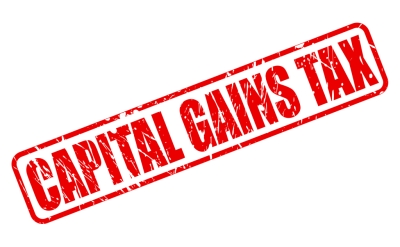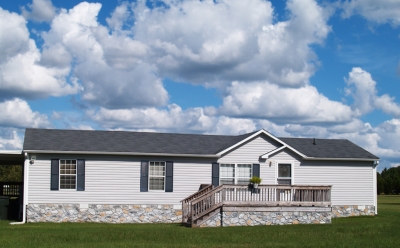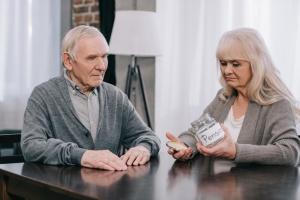
Since I am only addressing the capital gains tax laws for real estate, the answer is,
“Every single homeowner in America regardless of your income!”
The capital gains laws only became a “loophole” when a certain presidential candidate started calling it that in his campaign commercials. Before we get into the nitty gritty on how it’s a good thing for all American homeowners, let’s first take a look at how it works.
How the Capital Gains Tax Law Works for All Americans
The IRS typically allows you to exclude up to:
- $250,000 of capital gains on real estate if you’re single.
- $500,000 of capital gains on real estate if you’re married and filing jointly.
For example: If you bought a home 10 years ago for $200,000 and sold it today for $800,000, you’d make $600,000.
If you’re married and filing jointly, $500,000 of that gain might not be subject to the capital gains tax (but $100,000 of the gain could be).
How it Benefits You and Me
In order to really illustrate how this law benefits so many Americans, especially those making less than $100,000 a year, let’s look at my best friend’s situation. I’ll call her Paula, and her husband, Fred.

When Paula and Fred were both working, they paid $350,000 for a brand, spanking new home. Their combined income at the time was right around $140,000 per year. (Yes, I know I said less than $100k, but keep reading.) They lived in that wonderful home for about 15 years until the kids all moved out.
Shortly after that Fred was laid off at the age of 57. So his income went to zero. As a result of his age, balding gray hair and weathered skin, no one would hire him. And he wasn’t old enough (62) to collect Social Security or withdraw anything from his 401k (59.5). So Paula basically became the main “bread winner” bringing in around $65,000 per year.
Due to a series of more unexpected events, Paula and Fred had to downsize: They sold their house and bought a smaller, more affordable one. Lucky for them the market was good and they ended up selling their current home for $450,000, making $100,000 on it.
Also lucky for them the capital gains law said that they didn’t have to pay income taxes on that $100,000 profit so they were able to use most of it as a huge down payment on a smaller, less expensive home, resulting in a house payment that’s about half of what it was on their original home. And, bonus, they could afford it on Paula’s income alone. (They used about $10k for paint and new curtains.)
That’s pretty cool, don’t you think? They were doing really well.
If the capital gains law is changed to where all profits made on real estate are taxed at 10%, 15$ or 20%, this lovely couple would not have had as much money to use as a down payment, and they may not have been able to even qualify for another home loan on Paula’s income alone. Personally I think that would have really sucked!
 Now, a few years later Paula decided she wanted to retire and possibly relocate to a warmer climate that would also be closer to all the grand-kids that came along. Paula and Fred figured out that they could do it because that warmer climate area had the added benefit of little bit lower real estate costs.
Now, a few years later Paula decided she wanted to retire and possibly relocate to a warmer climate that would also be closer to all the grand-kids that came along. Paula and Fred figured out that they could do it because that warmer climate area had the added benefit of little bit lower real estate costs.
The cool thing is that that smaller, cheaper house they had only paid $210,000 for, went up in value in those few years: They sold it for $350,000. Wow! Their capital gains this time was $140,000.
Knowing that they would really be on that weird thing now called a “fixed income” (that means neither one ever gets a promotion or huge raise ever again) of around $35,000 per year, Paula and Fred knew that they had to buy their next, and hopefully last home, for under $200,000 and use most of their profit for a down payment.
With the current capital gains laws saying that they could keep all of their profit, they were able to put $120,000 into this last house as a down payment, (use the rest for new, paint, carpet and curtains) and have a really low mortgage, again, that they can afford for the rest of their lives on the same income, aka, fixed income of $35,000 a year till they die.
Summary
Oh yeah! Why Am I Telling You This?
 This is just one example of an older couple who are downsizing because of job loss and then going through the process of retiring. It worked out quite well for them.
This is just one example of an older couple who are downsizing because of job loss and then going through the process of retiring. It worked out quite well for them.
Keep in mind there are a lot of reasons people sell homes and buy smaller ones besides job loss and retirement. For instance: Job transfers because companies move or shut down, divorce, or death of a spouse and not enough life insurance, if any, to make up for the loss of income (Paula and Fred do have life insurance for that, thank God).
Do any of these real life situations sound familiar to you?
The one thing all of them have in common is that you are in a very scary and unstable financial situation. And you do not need anyone swooping in and saying,
“Sorry your finances are in a mess, but you need to pay the government another $10k - $15,000 out of your house profit before you can move on. Oh what, you need that to qualify for another home loan? Sorry, not my problem.”
By the way, another part of the law states that you have, what I believe is a “once in a lifetime exception” where you do not have to roll your profits into another house and you don’t have to pay income taxes on it. That worked out well for my Mom who was diagnosed with dementia so we sold her house, and the profits are being used, along with her Social Security, to pay for her to live in a memory care facility with round the clock nursing care.
Again, if this capital gains “loophole” is eliminated, there are a lot of people like you (and me and my Mom) who could really find yourselves in a horrible, financial bind at a time in your life when money is not flowing in like it once used to.
As I said at the beginning of this article, there is a certain presidential candidate who is filling my HULU channels with a ton of commercials saying that he wants’ to “eliminate the capital gains loophole for the rich.”
After reading about Paula and Fred (and maybe reading this article – Click here) you now know that the capital gains laws benefit all homeowners in America regardless of their income. And the capital gains laws only became a “loophole” when this guy started calling it that in his campaign commercials.
I feel like this potential candidate is attempting to present himself as helping us average Americans with such a “generous, considerate” campaign promise, but he’s really going to be hurting millions of Americans if he gets the opportunity to keep this promise. I also get the impression he’s hoping no one will question what he’s actually saying and just vote for him simply because he makes it sound like he’s sticking it to the “rich.”
By the way, do you know how rich he is? Here’s some irony for you: click this link to find out what I’m talking about:
Click here to find out what I’m talking about.
I hope this information is helpful to you personally regardless of the presidential race.
Take care,
Jan
